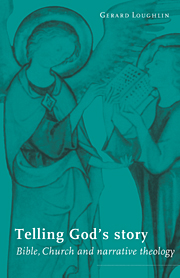4 - Making it plain
Published online by Cambridge University Press: 24 August 2009
Summary
In recent years the Bible has increasingly been read as literature rather than as Scripture, as a text of pleasure rather than of edification: a site for the exercise of literary skill rather than ‘for training in righteousness’. It has come to be read as one would read ‘any other book’. This literary interest is not new, but it has only recently become possible for libraries to catalogue the Bible as world poetry rather than as sacred Scripture.
Prior to the interest of literary critics, historians had long taken the Bible as they would any other document. For them the Bible is to be read as they would Tacitus or Cicero. It is but a trace of the past. Indeed, the problems of historical criticism – especially in regard to the Bible – are very largely literary ones; questions of imaginative reading. Faced with the levelling of the Bible in the nineteenth century, Cardinal John Henry Newman felt it needful to point out that for the Church, the Bible ‘cannot be put on the level of other books’. He insisted that the ‘Catholic scholar or man of science’ must never ‘forget that what he is handling is the Word of God, which, by reason of the difficulty of always drawing the line between what is human and what is divine, cannot be put on the level of other books, as it is now the fashion to do, but has the nature of a Sacrament, which is outward and inward, and a channel of supernatural grace.’
Information
- Type
- Chapter
- Information
- Telling God's StoryBible, Church and Narrative Theology, pp. 107 - 138Publisher: Cambridge University PressPrint publication year: 1996
